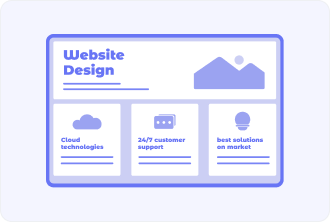Headlines Definition

Headlines make the very first impression about your content, which users quickly scan to receive an overall understanding of what a page offers them. Headlines help to indicate what the page is all about, and optimally, you can improve SEO and content personalization using various headlines that are the most appropriate for your audience.
In a nutshell, headlines also stand for article naming when you implement the best-persuasive practices to make users read more and stay on your website.
Typically, headlines are printed in large letters at the top of an article, so it has to be clear, easy to understand and read simultaneously with a convincing message you want users to receive from your article or UX content on the page.
The importance of headlines
Visitors to your website won’t walk around your capabilities if you make confident and informative titles. Headlines bring the following perks to the table:
Work immediately
If your primary goal is to catch the attention of viewers and evoke interest, a well-written will help you meet your targets. A good headline makes it possible for emerging brands to expand their presence as a catchy line and a short description are the only elements a customer sees when using search engines.
Improve engagement
When a consumer opens your blog section and scrolls through available articles, clear and focused headlines will lead them to what they need. They can show benefits, drive emotional response and offer guidance.
Solidify your brand
The headings (and content) demonstrate your knowledge about a topic. Offering solutions for complex problems in easy language will help grow you a loyal audience, who will rely on your expertise.
Mistakes to avoid in a headline
What makes headlines effective? You can find various approaches that are appropriate for your business strategy. However, there are several rules that will help you save time and efforts:
- Don’t underestimate clarity
A riddle can attract customers’ attention so they will spend more time on your website and memorize your brand. This will work with curious people who look for new meanings, but most searches will try to get results fast. Headlines must be understandable and provide enough information in simple terms.
- Don’t overuse clickbait
The examples “This strategy will give you millions of dollars” or “this problem ruined 1000 businesses” are too loud. Such headlines can be used if they really represent what is inside. Otherwise, you will lose the interest of visitors.
- Take into account the level of a user
IaC for deployment and administration of configuration — such a headline can be appropriate for an advanced reader who understands that IaC is Infrastructure as Code. If your audience is people who have no way of knowing about abbreviations and terminologies, complex headlines will not provide them with the necessary information.
- Consider the length
Depending on the industry, headlines can be different, however it is common for them to be short as their main mission is to ignite interest. A line that is too lengthy can’t provide quick answers. As people usually open several websites to find what they are looking for, they choose something that is in line with their search.